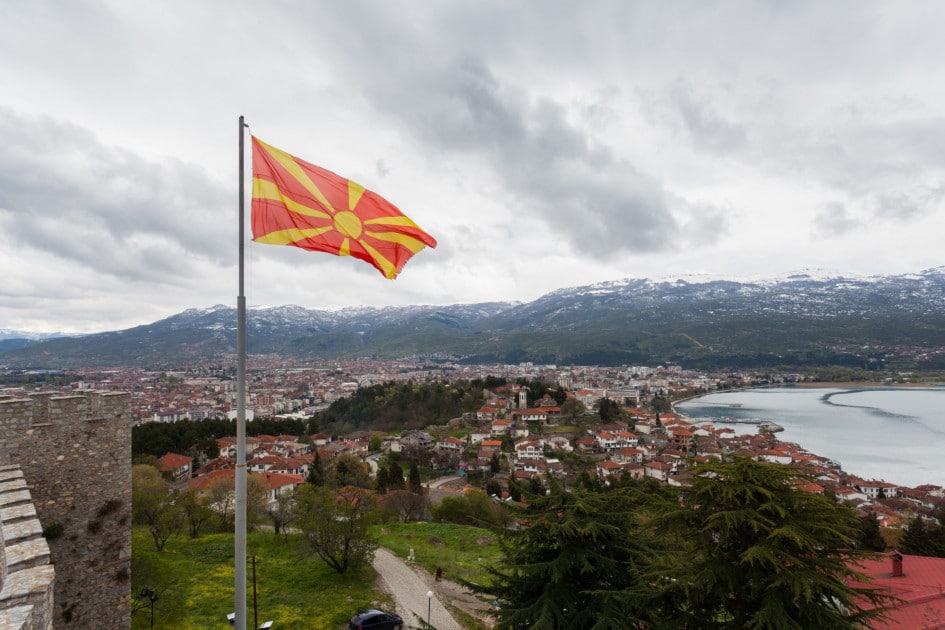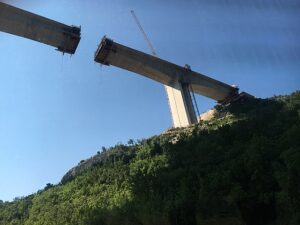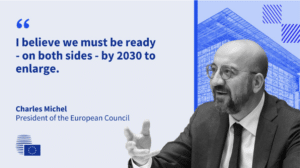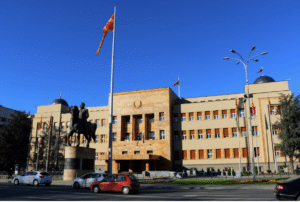Samoils Fortress in Ohrid, North Macedonia (Source: Historielaerer)
If you would have asked experts a month ago about EU negotiations with candidates Albania and North Macedonia, few of them will have predicted the developments in recent weeks. For the first time, all hurdles for accession talks to kickstart are overcome. For now at least. North Macedonia’s parliament voted in favour of the ‘French proposal’, a compromise to remove the Bulgarian veto. However, this was not without its opposition. Issues of nationalism are put to the test.
Opposition towards North Macedonian EU membership
Seventeen years it has been since North Macedonia became an EU candidate. Albania has been in the waiting room for eight years, not in the slightest due to its coupling with neighbouring North Macedonia. The latter had to endure opposition to its membership, first from Greece and later Bulgaria, which has delayed the start of accession talks for both candidate countries.
EU membership for North Macedonia has been a sensitive topic in both Greece and Bulgaria, as a result of unresolved historical disputes. The name change from Former Yugoslav Republic of Macedonia into North Macedonia erased enough concerns from Greece in 2019, which paved the way for NATO membership and EU candidate status. However, since then Bulgaria has blocked negotiations over North Macedonia’s acclaimed failure to acknowledge the Bulgarian heritage of its national language and recognition of its Bulgarian minority.
Polticial controversy over the ‘French compromise’
It is not uncommon for EU members to gain as much concessions in the wake of a new member joining the bloc. Italy has done so when Slovenia sought to join the EU in 2004. And Slovenia did the same with Croatia in 2013. Yet, this time the topic under discussion is not one that it taken lightly by politicians, and more importantly citizens, alike.
Last month’s ousting of the Bulgarian government was part to blame on the sensitive topic. Prime Minister Kiril Petkov’s ambitions to unlock North Macedonia’s EU accession negotiations were not shared by its nationalist coalition partner. The controversy was so high, that it felt the need back a vote of no-confidence aimed at the social-democratic party leader.
The expectation was that, given the political crisis in Bulgaria, the window of opportunity for North Macedonia was closed. However, French President Emmanuel Macron was not about to let this happen, in line with his wider ambitions of a new ‘European Political Community’. In came the ‘French proposal’, involving North Macedonian constitutional amendments recognizing its Bulgarian minority.
Immediately the North Macedonian government warned it would not agree to the compromise. Meanwhile, thousands took to the streets in an attempt to put a stop to the proposal many of them considered a ‘national betrayal’. It threatens to “Bulgarianize” the country, critics said.
Green light for accession negotiations despite strong opposition
Disgerading the strong statements and ongoing protests, the North Macedonian parliament approved the ‘French proposal’ on July 16. A number of 68 lawmakers, out of 120, cast their ballots in favour of the compromise. The opposition parties failed to participate in the vote, leaving parliament beforehand.
By approving the amendment of its constitution North Macedonia has lifted the Bulgarian veto, for now. There is no guarantee though that a new Bulgarian government will not block future accession stages, if it desires additional concessions. Critics of the ‘French proposal’ call it unfair. However, there seems to be no alternative for North Macedonia if it wants to pursue a future within the EU.
Nationalist political interests cannot be disregarded
The negotiating parties are allowed to be cheerful that EU accession negotiations may finally begin. Still, there are important lessons to be learned from last month’s developments. Although nationalism feels like something from a previous century for European leaders, it is not. Dictators feeling the need to invade neighbours to restore the borders of their long-lost empires tell us that. And so do government oustings and large-scale protests over historical disputes.
History is not something of the past in the Western Balkans, but strongly embedded in the present. If EU leaders fail to understand this, frustrations from the side of Western Balkan leaders about the accession process will remain. One does not need to agree on all of the technicalities, but to comprehend what drives each other’s main interests is a precondition for successful accession negotiations. EU leaders need to step-up to understand the history of Western Balkan states.
Sources: Aljazeera1, Aljazeera2, Euractiv, France24, Rferl1, Rferl2, Rferl3, Bne
Photo: Historielaerer



